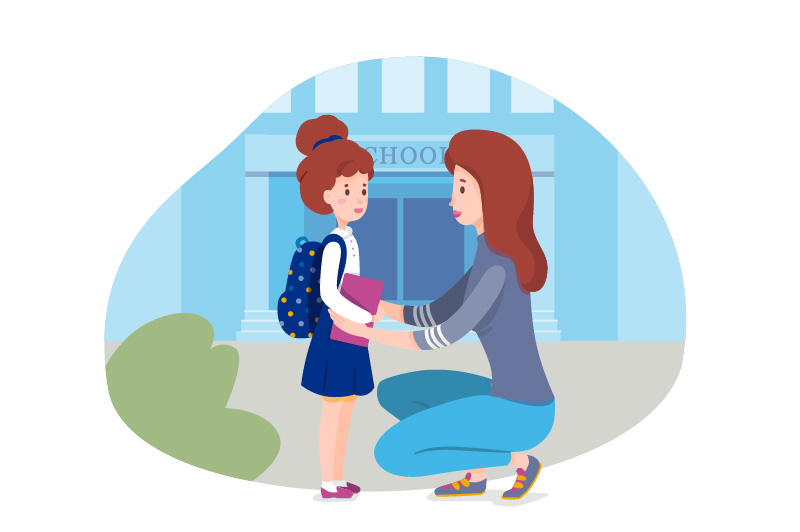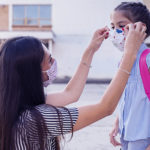Help your child manage anxiety about school violence

With news of school shootings and other violence often reaching children, parents sometimes grapple with how to help their child cope with fear and stress. We asked Erica Lee, PhD, a psychologist in the Department of Psychiatry and Behavioral Sciences at Boston Children’s, to offer suggestions on how you can ensure your child feels safe and comfortable going to school.
Plan how you will talk to your child
First, consider what you’d like your child to know — this will vary by their age, emotional capacity, and ability to understand the world. Sometimes, parents may feel like they’re sugarcoating information if they tell their child they will be safe, however you don’t want to lie to your child and act as if school shootings haven’t happened if they know they actually have. Validate their reactions, adjust your language to what they can manage, and reassure them that school shootings are statistically rare.
Be a source of information and assurance
Encourage your child to use you as a primary source of information. Ask if they have questions, what they’re unsure about, or what doesn’t make sense. If you don’t know the answer, it’s okay to tell them you’re unsure and that you’re going figure it out together. For older children, ask what they’ve heard from friends or seen on social media. This offers them a way to share what’s on their mind and process upsetting news with you. It also helps you check whether they’re picking up accurate information.
For younger kids, keep it simple and concrete — don’t go into detail. Reinforce the idea that some people do bad things, but most people are good. Use examples from your child’s life that resonate with them. If your child isn’t old enough to understand school shootings but is generally aware something scary happened, you can limit the conversation to how sometimes the world isn’t always safe but you, their teachers, and other caring adults are working all the time to make the world safer.
Manage their intake of news
Limit your child’s exposure to the news, especially right after an incident. News reporting can include too many details for children, and the rehashing of the same facts can make school shootings and violence seem more common than they are. However, if your child is older and can digest the information, watch the news with them. That gives you a chance to talk about what happened, assess their understanding, and offer comfort that makes sense for them.
Help build support for your child at their school
Learn about safety plans at your child’s school and don’t hesitate to ask school officials for more information or clearer details. If your child is anxious about attending school or having a hard time getting through the day, consider working with their school counselor to help your child practice coping skills. You can also help your child identify a trusted adult they can go to if they feel unsafe.
Remember to take care of yourself, too
These events are deeply upsetting for everyone, especially parents. It can be easy to neglect your own needs. Be sure to check in with yourself. Make space for your feelings and take time to process your own reactions. Try to engage in healthy coping practices, such as going for a walk, talking to a friend, or practicing meditation. Taking care of your own needs allows you to model healthy coping to your family.
Learn more about the Department of Psychiatry and Behavioral Sciences at Boston Children’s Hospital.
Related Posts :
-

Answers to six questions about anxiety in children and teens
Between school and social demands, lots of children feel stress, but at what point does anxiety cross the line and ...
-

Helping your child cope with separation anxiety
When your baby can’t seem to fall asleep in their crib after weeks of trying, or daycare drop-off always ...
-

Four ways to support your teen's mental health
Being a teen is hard enough, but with the current adolescent mental health crisis, parents should know about the psychosocial ...
-

The great mask debate: how to deal with bullying over face masks in school
As the war against COVID-19 rages on, so do the battles about the best ways to stop the spread. And, ...





